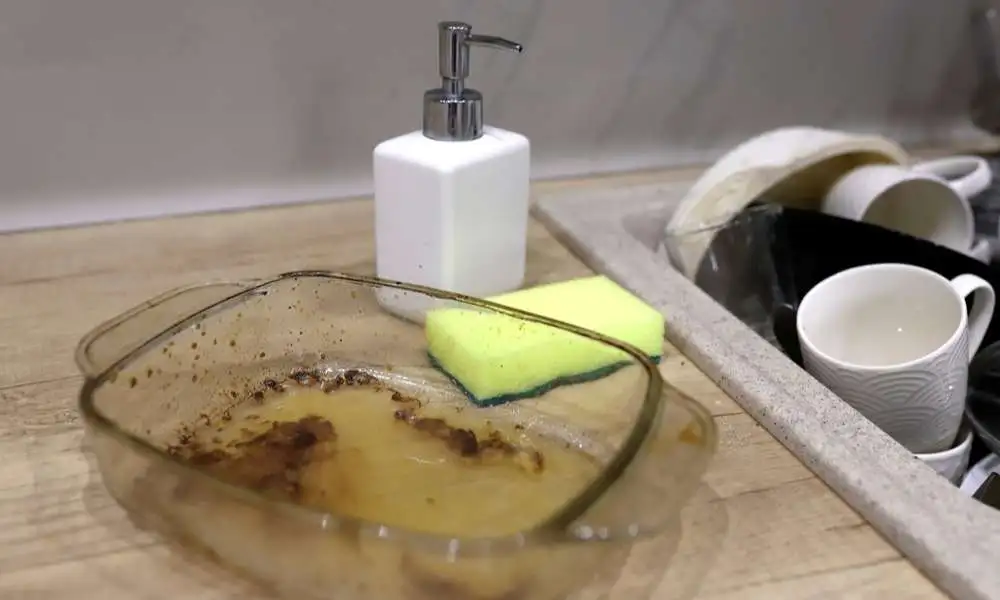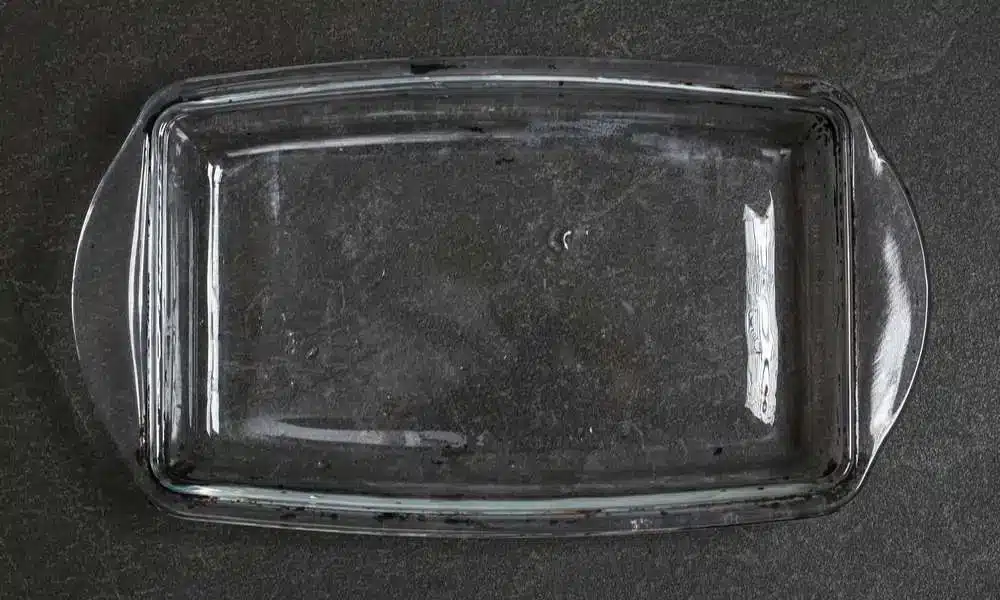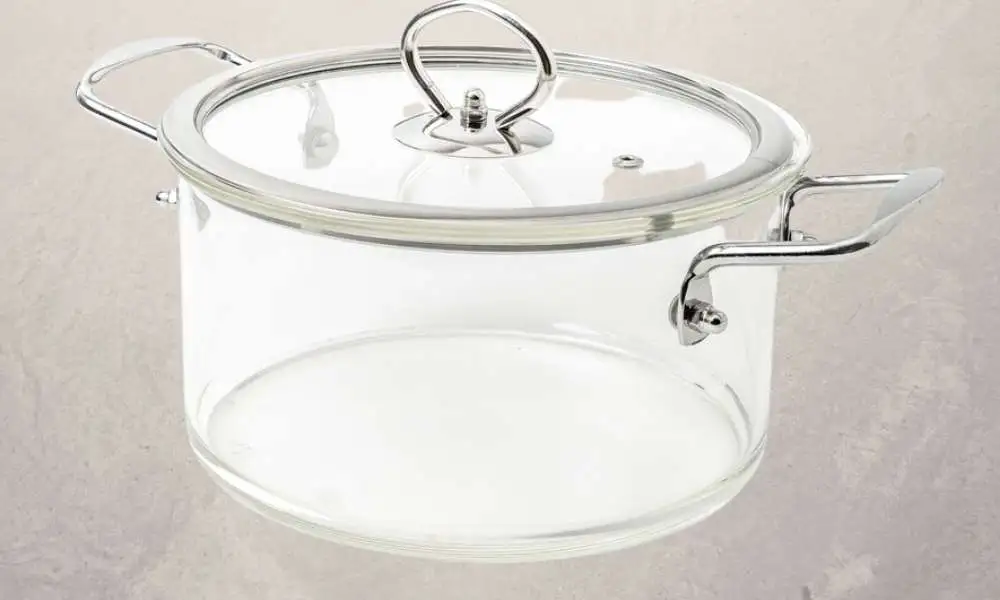Cleanliness is important for all types of cookware, But glass cookware requires special care. Glass cookware, Including baking dishes And lids, Can easily become stained And cloudy if not properly cleaned. To avoid this problem And ensure Your glass cookware remains in pristine condition, The following article will discuss how to clean it properly. By following these simple steps, You’ll be able to keep Your glass cooking utensil looking brand-new for years!
What is Glass Cookware?
Glass Cookware is A type of cookware made from glass, Usually tempered or borosilicate. It is an excellent choice For cooking And baking because it is non-porous And does not leach chemicals into food, Making it A safe And healthy option.
Glass cooking utensils come in A variety of shapes And sizes, Including baking dishes, Saucepans, Skillets, Roasting pans, Dutch ovens, And more. Many pieces are also oven-safe up to 350°F (177°C), Allowing you to bake Or roast without having to transfer the dish from one vessel to another.
When using glass cooking utensils On the Stovetop. It’s important to use low to medium heat settings since the reflector can be easily damaged by sudden temperature changes. For those who are looking for high-quality And reliable glass kitchen utensils. The use Parini Cookware line offers a wide range of options.
What You’ll Need
- Dish soap
- Sponge
- White vinegar, Detergent, or Lemon juice
- Dishtowel
Step 1: Preparing The Cookware
To clean glass cookware, Start by allowing the dish to cool completely after use. Do not rinse hot glass dishes with cold water as this sudden change in temperature may cause them to shatter. Instead, Fill the dish with warm soapy water And let it soak For 10-15 Minutes before washing it with A non-abrasive sponge or cloth.
Step 2: Pre-Scrub with Warm Water And Soap
Before attempting to clean your glass cookware, Fill A sink or large bowl with warm water And add A few drops of dish soap. Let the cooking utensil soak in the soapy solution for several minutes. Allowing the warmth to loosen any stuck-on food particles. This pre-scrubbing step also helps remove grease And oil from the surface of your kitchen utensil.
Step 3: Using Detergent to Remove Stains And Stubborn Grease
Choose A dishwashing detergent that is specifically designed For tough stains And grease. These detergents usually contain enzymes that break down the stain molecules And lift them away from the surface of your cookware. Mix A small amount Of detergent with warm water in A bowl or sink large enough to fit your cooking utensil. Soak your glass kitchen utensil for at Least 30 Minutes to give the detergent time to work its magic.
Step 4: Or Using Vinegar
To clean glass cookware with vinegar, Start by filling the pot or pan with equal parts water And white vinegar. Bring the mixture to A boil And then let it cool down completely before emptying it out. Next, Sprinkle some baking soda onto any stubborn stains or discolorations And scrub them away with A soft sponge or brush.
Another effective method For cleaning glass cooking utensils with vinegar is to mix together one part of white vinegar And two parts of water in A spray bottle. Spray this solution onto your cookware And then use A soft cloth or paper towel to wipe away any dirt, Grime, Or grease
Step 5: Scrubbing with Soft Materials

When it comes to cleaning reflector cookware, Using soft materials is key. Abrasive cleaners And rough scrubbers can scratch or damage the surface of your glass pots, Pans, And dishes. There are A variety of gentle yet effective tools you can use to keep your reflector cooking utensil looking clean And shiny.
One option is to use A microfiber cloth or sponge. These materials are designed to be gentle on delicate surfaces While still providing enough friction to remove grease And grime from your cooking utensil.
Another option is to create A natural cleaning solution with ingredients like vinegar, Baking soda, And lemon juice. These solutions can be applied with A soft brush or cloth For additional cleaning power without damaging the reflector.
Step 6: Wash And Make Sure there is no Dirt or Soap
Keeping your glass cookware clean is essential For Maintaining its longevity And ensuring that it remains safe to use. One of the most important steps in cleaning reflector Cooking utensils is to wash it thoroughly And make sure there is no dirt or soap residue left behind. This not only helps prevent damage to the reflector. But also ensures that your food stays free from any Unwanted Contaminants.
Step 7: Drying The Cookware

Drying your cookware is an essential step to ensure that it lasts longer And remains in top condition. This is especially true For clean reflector cooking utensils, Which can be prone to spotting if left to air dry. If you want your glass cooking utensil to remain sparkling clean And free from water spots. Then drying it immediately after washing is A must.
To dry your glass cooking utensil effectively, Start by using A soft cloth or paper towel to gently wipe away any excess water droplets from the surface. Pay special attention to the rims And edges of the pan, As these areas tend to collect more moisture. Next, Use A clean dish towel or microfiber cloth to thoroughly dry all surfaces Of the Cookware
Step 8: Storing The Cookware
Make sure that your kitchen cabinets or shelves are free from any dirt. Dust or debris before placing your reflector Cookware inside them. Use A damp cloth to wipe off any surfaces Where you plan on storing your dishware. Avoid stacking heavy items on top of each other, Especially if they are made out of different materials like metal And glass.
Next, Try using dividers or soft padding between dishes to prevent scratches And chips. This will also help with organization And space saving in your kitchen.
Conclusion
The key to having clean And sparkling glass cookware is to give it A regular, Thorough clean. Properly cleaning your cooking utensil not only ensures that it looks good But also ensures that it remains safe for use. Start by removing all traces Of food with warm soapy water or A non-abrasive scrubber. Then use vinegar, Baking soda or A glass-ceramic cleaner to remove any further residue. Finally, Rinse with hot water And dry thoroughly with A cloth or paper towel.
